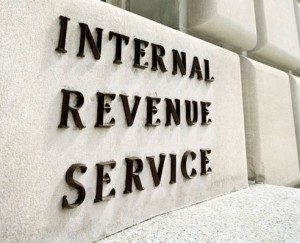
The Internal Revenue Service has the right to redeem real property which was sold in a nonjudicial foreclosure action by a third party to satisfy an outstanding encumbrance which has a priority over a Notice of federal Tax Lien. (Internal Revenue Manual 5.12.5.1; 26 U.S.C. §7425 [after non-judicial foreclosure]; 28 U.S.C. §2410(c) [after judicial foreclosure].)
The redemption period expires 120 days from the date of the trustee’s sale or sale pursuant to judicial foreclosure (Internal Revenue Manual 5.12.5.1; 26 U.S.C. §7425.)
If the IRS wants to redeem the real property, it must pay the sum of the actual amount paid by the purchaser at such sale (or the amount of the successful credit bid) plus 6% interest on this amount plus expenses incurred to maintain the property (above any income derived from the property) plus any payments made to a senior lienholder. (Internal Revenue Manual 5.12.5.5.4; 28 U.S.C. §2410(d).) If the amount to redeem is more than the fair market value of the property, there would be no incentive for the IRS to redeem.
The owner after foreclosure can apply to have the IRS release its right of redemption. (IRS Publication 487). This may or may not cost anything. The Internal Revenue Manual states: “In nonjudicial proceedings, if it is determined that the right of redemption is valueless, no consideration shall be required to waive the Government’s redemption right from either a private individual or Federal agency.” (Internal Revenue Manual 5.12.5.9). The right of redemption would be “valueless” if the fair market value is very near to or less than the required redemption amount.
Owners of property that are subject to the IRS’s right of redemption should usually hold-off on any substantive improvements, etc. during the redemption period. Improvements during this period which increase the value of the property could encourage the IRS, or buyers who may approach the IRS, to redeem the rejuvenated property near the end of the 120 day redemption period.
***Disclaimer: This page has been prepared by Spiwak & Iezza, LLP for informational and educational purposes only. The content is intended to provide a general overview of the law and does not constitute specific legal advice. Viewing this page or using this site does not establish an attorney-client relationship with Spiwak & Iezza, LLP or any of its members. Additionally, because laws are subject to frequent changes, some of the information provided may no longer be current or applicable.


